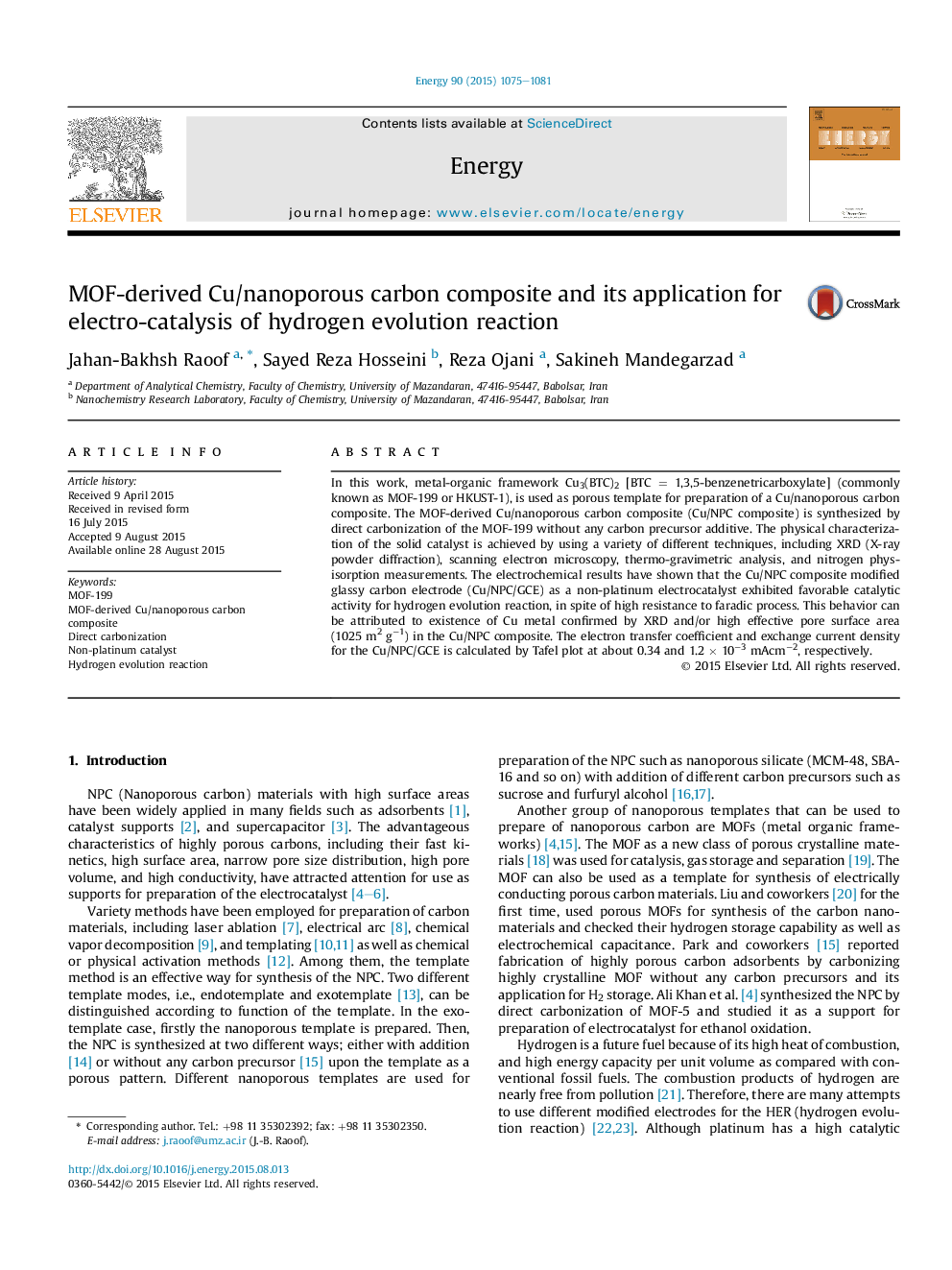| Article ID | Journal | Published Year | Pages | File Type |
|---|---|---|---|---|
| 1731806 | Energy | 2015 | 7 Pages |
•MDNPC (MOF-199 derived nanoporous carbon) is prepared by direct carbonization.•MOF-199 is utilized as a template without addition of carbon resource.•The MDNPC has a good electrocatalytic activity in hydrogen evolution reaction.•High BET surface area and hydrogen adsorption property improved catalyst activity.
In this work, metal-organic framework Cu3(BTC)2 [BTC = 1,3,5-benzenetricarboxylate] (commonly known as MOF-199 or HKUST-1), is used as porous template for preparation of a Cu/nanoporous carbon composite. The MOF-derived Cu/nanoporous carbon composite (Cu/NPC composite) is synthesized by direct carbonization of the MOF-199 without any carbon precursor additive. The physical characterization of the solid catalyst is achieved by using a variety of different techniques, including XRD (X-ray powder diffraction), scanning electron microscopy, thermo-gravimetric analysis, and nitrogen physisorption measurements. The electrochemical results have shown that the Cu/NPC composite modified glassy carbon electrode (Cu/NPC/GCE) as a non-platinum electrocatalyst exhibited favorable catalytic activity for hydrogen evolution reaction, in spite of high resistance to faradic process. This behavior can be attributed to existence of Cu metal confirmed by XRD and/or high effective pore surface area (1025 m2 g−1) in the Cu/NPC composite. The electron transfer coefficient and exchange current density for the Cu/NPC/GCE is calculated by Tafel plot at about 0.34 and 1.2 × 10−3 mAcm−2, respectively.
Graphical abstractMetal organic framework-derived Cu/nanoporous carbon composite (Cu/NPC composite) was prepared by direct carbonization of MOF-199 without addition of any carbon source at 900 °C. The Cu/NPC/GCE demonstrated an excellent electrocatalytic activity towards hydrogen evolution reaction compared with bare GCE.Figure optionsDownload full-size imageDownload as PowerPoint slide
